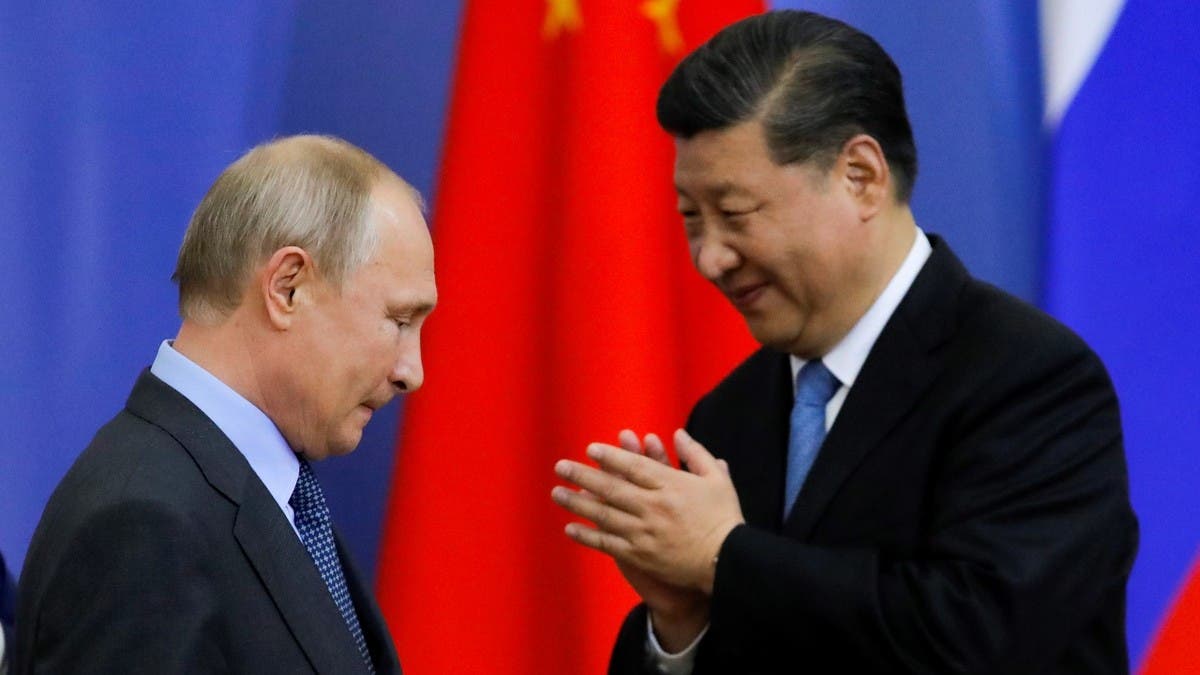Chinese President Xi Jinping has held a flurry of talks with state leaders, including Vladimir Putin, since Russia’s invasion in Ukraine. But there’s one big omission from his diplomatic outreach: Volodymyr Zelenskyy.
Xi has spoken with at least eight world leaders in the month since the invasion, stressing Beijing’s preference for dialogue over war and sanctions.
For the latest headlines, follow our Google News channel online or via the app.
The leader of the world’s second-largest economy has encouraged Russia to move toward negotiations, offered to work with France and Germany to promote talks and told President Joe Biden that China “stands for peace.”
When asked Wednesday why Xi hadn’t spoken with Zelenskyy, Foreign Ministry spokesman Wang Wenbin told a regular news briefing that China had “smooth communications on the Ukraine issue. “China supports all parties to uphold the concept of indivisibility of security,” Wang said.
Zelenskyy aide Andriy Yermak on Tuesday called for an exchange with Xi sometime “very soon.”
Xi might be reluctant to speak with Putin’s wartime rival so soon after declaring a “no limits” partnership with the Russian leader on February 4. That draws a contrast between Xi and at least 17 other state leaders — including from all of the Group of Seven nations — who have spoken with the Ukrainian president and, in many cases, sanctioned Russia.
Zelenskyy has addressed at least 10 national legislatures over the past month, most recently the Japanese Diet on Wednesday.
While China’s top US envoy has claimed Beijing’s tight ties to Russia and Ukraine were an “asset in peace talks,” the silence between Xi and Zelenskiy raises questions over China’s commitment to mediation.
Other potential arbiters of talks, such as Turkey’s Recep Tayyip Erdogan, Germany’s Olaf Scholz and Israel’s Naftali Bennett, have spoken to presidents on both sides of the war.
“China can only advise Russia to try to end the conflict in a dignified manner to avoid the last thing Beijing wants: the collapse of Putin’s regime and the emergence of a pro-Western government,” said Chen Shih-Min, an associate professor specializing in international security at National Taiwan University.
Xi and Putin held a call within days of the February 24 invasion, during which the Chinese leader didn’t condemn Moscow’s military aggression. “The Chinese side supports the Russian side in solving the issue through negotiation,” Xi said, according to the official Xinhua News Agency.
Since then, while Beijing has maintained it respects the Ukraine’s right to sovereignty, it’s voted against a United Nations court order for Moscow to immediately suspend its military operations, refused to join a US-led sanctions campaign to isolate Putin’s regime and framed Washington as the “culprit of the conflict” for encouraging the eastward expansion of the North Atlantic Treaty Organization.
In that environment, Xi has left the hard talk to his diplomats. His ambassador to Ukraine last week reassured local officials that China was a “friendly country” that would “never attack Ukraine.”
Chinese Foreign Minister Wang Yi told his Ukrainian counterpart on March 1 that Beijing was “highly concerned by the war, in what remains the most senior diplomatic exchange between the two countries.”
Wang Yi has separately said that China would carry out mediation “when needed and outlined a six-point plan to provide humanitarian relief.”
Yet, a Foreign Ministry pledge last week of $1.6 million in aid, including food, baby formula, sleeping bags, quilts and damp-proof mats, was poorly received in Ukraine.
“Russia is bombing us,” Ukrainian Deputy Prime Minister Iryna Vereshchuk said Friday of the announcement. “This is absolutely frivolous — undignified and unworthy of a great nation. In the same week, Biden approved an $800 million aid package to Ukraine, adding to the $200 million of military assistance already on the ground.”
In an address to the Israeli Knesset on Sunday, Zelenskyy criticized lawmakers for refusing to send arms or welcome refugees, comparing his citizens’ plight to that of the Jews in Nazi Germany.
“Can you explain why we’re still waiting, he said. “What is it? Indifference? Political calculation? Mediation without choosing sides?”
Days earlier, he criticized Germany in a video address to its parliament for putting profits over people, referencing the nation’s gas inflows from Russia. “Give Germany the leadership role that you in Germany deserve”, he said.
Zelenskyy’s confrontational tone might be one reason for Xi to put off direct engagement.
“Beijing is keeping that instrument in reserves, Wen-Ti Sung, lecturer in Australian National University’s Taiwan studies program,” said of a possible Xi-Zelenskyy call. “When the international community applies enough pressure, China may then deploy that option, to turn down the heat.”
Read more:
Ukraine urges China to play more visible role to halt Russia’s war
Chinese Foreign Minister Wang Yi in Afghanistan: Taliban official
Chinese official calls sanctions on Russia increasingly ‘outrageous’

 World3 years ago
World3 years ago
 World3 years ago
World3 years ago
 Business1 year ago
Business1 year ago
 Entertainment7 years ago
Entertainment7 years ago
 World7 years ago
World7 years ago
 Entertainment7 years ago
Entertainment7 years ago






